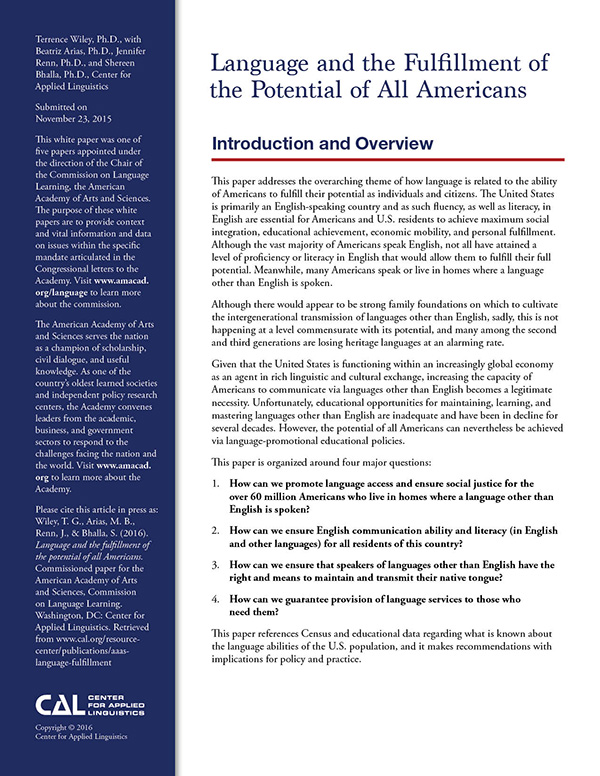White paper commissioned by the American Academy of Arts and Sciences, Commission on Language Learning.
Terrence Wiley, PhD, with Beatriz Arias, PhD, Jennifer Renn, PhD, and Shereen Bhalla, PhD, Center for Applied Linguistics
This paper addresses the overarching theme of how language is related to the ability of Americans to fulfill their potential as individuals and citizens. The United States is primarily an English-speaking country and as such fluency, as well as literacy, in English are essential for Americans and U.S. residents to achieve maximum social integration, educational achievement, economic mobility, and personal fulfillment. Although the vast majority of Americans speak English, not all have attained a level of proficiency or literacy in English that would allow them to fulfill their full potential. Meanwhile, many Americans speak or live in homes where a language other than English is spoken.
The paper is organized around four major questions:
- How can we promote language access and ensure social justice for the over 60 million Americans who live in homes where a language other than English is spoken?
- How can we ensure English communication ability and literacy (in English and other languages) for all residents of this country?
- How can we ensure that speakers of languages other than English have the right and means to maintain and transmit their native tongue?
- How can we guarantee provision of language services to those who need them?
The paper references Census and educational data regarding what is known about the language abilities of the U.S. population, and it makes recommendations with implications for policy and practice.
Visit the American Academy of Arts and Sciences website.

